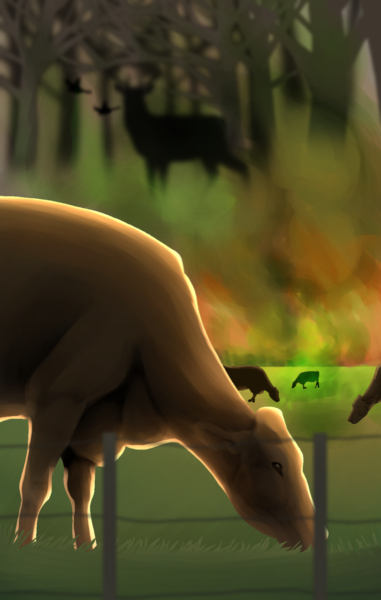 Deforestation is an issue that affects forests all over the world. According to Sentient Media, roughly 50,000 acres of woodland are cut down by loggers and farmers per day worldwide.
Deforestation is an issue that affects forests all over the world. According to Sentient Media, roughly 50,000 acres of woodland are cut down by loggers and farmers per day worldwide.
The largest cause of deforestation is agriculture, primarily cattle grazing. The negative effects of deforestation are most often associated with climate change, but deforestation also plays a large role in the spread of wildlife-born diseases and pathogens. This is an issue that is often overlooked, but now, during the COVID-19 pandemic, it is becoming more relevant with every passing day.
The loss of forest and wooded areas makes humans more likely to come into contact with wild animals that can carry diseases. According to EcoWatch, every year since 1980 the number of emerging infectious disease outbreaks has tripled. Two-thirds of these diseases come from animals, and 70 percent of those diseases come from wild animals.
Not only does deforestation increase human exposure to diseases and increase the likelihood of contracting them, disrupting the ecosystem has an effect on the number of viruses that exist and how they behave. Scientists believe that there is a strong possibility that the coronavirus emerged in a wet market from an animal, which makes this topic all the more relevant at this time.
Deforestation, most of which is driven by agriculture, is a major factor in the spread of disease. This is a subject that deserves attention. Though it may seem that there is nothing the average person can do in regard to this situation, this is not the case. One way people can help
